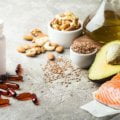The new subject of culinary genomics objectives is influencing our genes and health by advising us on what to consume and how to cook dinner. Here are all of its manners. Many of us tend to be accountable for our genes and fitness issues. But what if we could impact our genes by eating certain meals prepared in a specific way?
The new field of culinary genomics, which blends genomic technology with nutrients and the culinary arts, says it does that and uses food to influence gene expression. Registered US dietician Amanda Archibald first coined the word in 2015 and is now coaching medical doctors, dietitians, naturopaths, and nutritionists around the world about the exercise of culinary genomics.
“It takes nutrigenomics—the technology of how meals interact with our genes—out of the labs and puts it in the kitchen.” Archibald was in Sydney this month to present at the BioCeuticals Research Symposium and tell SBS what culinary genomics is.
“It takes nutrigenomics – the technological know-how of ways food interacts with our genes – out of the labs and locations it in the kitchen,” says Archibald. “Culinary genomics teaches us how to use our DNA to decide what we need to place on our plates and a way to cook dinner.”
A 101 on the link between our genes and food
Our genes decide how we procedure and use food. Archibald explains this with an instance. She tells SBS her husband changed into a born Greek dad and mom, later orphaned and raised absent of Greek subculture. “As a grownup, [he’s now] allergic to matters that could never be inside the Greek weight loss plan, to begin with, like limes, avocados, and cow dairy.
“I said to him, ‘Your genes aren’t lying. Greeks traditionally ate more goat and sheep’s milk than cows. They additionally don’t use several limes, however. Instead, they use lemons or oranges.” And so, regardless of his upbringing and surroundings, now that he is not Greek, his genes are. “It doesn’t remember wherein you’re from: simply the reality which you are a man or woman; your genes are going to reply to a few ingredients within the same manner.”
Nutrigenomic advice for all of us
These days, we can get admission to DNA assessments that reveal special fitness records about how our bodies process ingredients and the vitamins we need more or less of. Those exams cost cash, and no one has enough money anymore.
Archibald says this is where culinary genomics is available. “On a private degree, taking wiDNA will inform you how much a selected diet or micronutrient is needed compared to the next individual. But there are ideas [about genes and nutrition] that are practiced to everybody, whether or not you understand your precise genomic information because our bodies all reply in the same manner to food.”
This is because, at a molecular degree, our genes reply to the food we eat. “It doesn’t be counted in which you’re from just the fact which you are a human being; your genes are going to respond to a few meals in an identical manner.”
“We attempt to supply people the components that include the information for their genes so that we can flip off inflammation and reduce the pressure within the frame. Irritation and oxidative pressure are two factors that can hasten the getting older method and motivate illnesses in everyone.
2011, an examination from Norway suggests that our food regimen can cause irritation within the frame and boost the threat of growing lifestyle-associated illnesses. Researchers found that a standard Norwegian food plan manufactured from 65 percent carbohydrates precipitated some genes to paintings over time. This affected the genes that motivate infection within the frame. The examination showed inflammation also affected genes related to cardiovascular ailment, numerous cancers, and dementia.












